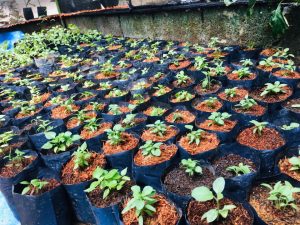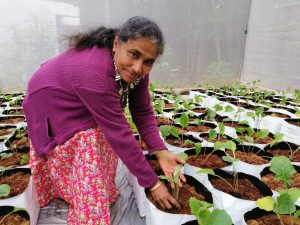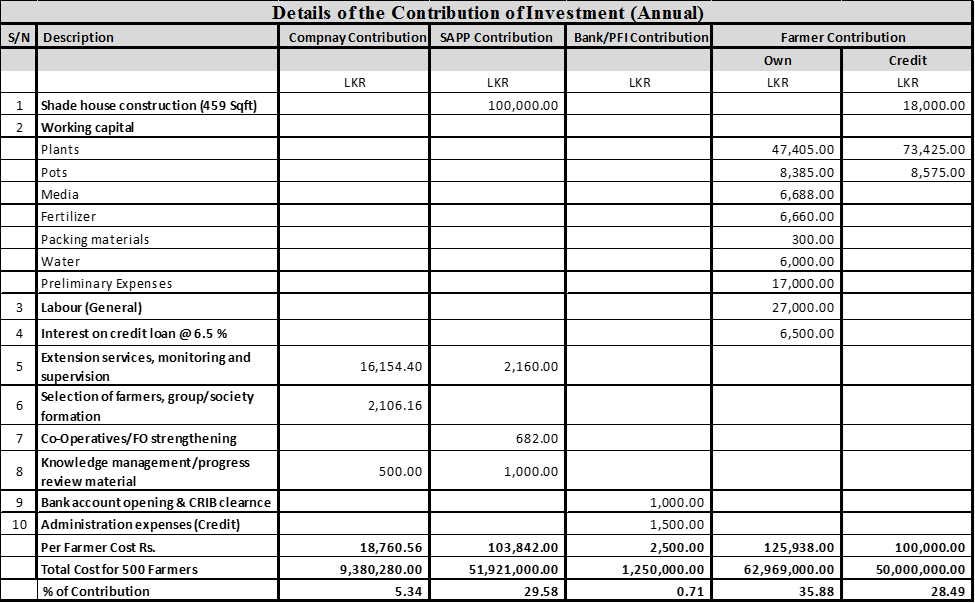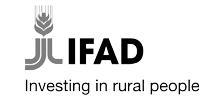Livelihood Development of unemployed women and youth through Floriculture Value Chain Development
Total Project Cost
RS. 175.52 Mn
Locations of the Project
Ratnapura, Badulla, Kegalle, Nuwara Eliya , Kaluthara, Matara and Hambanthota
Number of Beneficiaries
500



Background of the Proposed Project
Proposed project is to improve the livelihood of unemployed women and youth in above mentioned Districts to engage in income generation activities through Floriculture and to create direct linkages to export market through the private sector engagement. Further, the partnership focus on Farmer Organization strengthening and capacity development in all specified Districts to convert them to social enterprises during the implementation period.
Project Objectives
• Engage unemployed women and youth in sustainable income generation activities which leads to economic and social development of the country.
• Reduce economic and social constraints by developing means of income domestically for the female which intent to migrate overseas as housemaid.
• Connect and organize unorganized isolated flower cultivation to a proposer structure with clear marketing linkages including export.
• Establish and strengthen farmer organizations and to convert them to social enterprises with capacity development.
• Promote market oriented flower cultivation to cater local and export markets.
• Introduce high yielding and profitable flower varieties to enhance the income.
• Transform technology from private sector level to beneficiaries.
Investment Plan

Social Impact
The involvement of unemployed women and youth in floriculture will generate additional income for the household and as a result, they could play a major or equal role in household income generation. Once it identified as one of the sustainable improved cash flow generating option that could be easily combined with their day to day household activities. Most of the youth will note this as one option where they could be independent in choice and decision making through a developed income generation with dairy farming as an acceptable entrepreneurship.
Sustainability
Farmer organizations formation and strengthening could be considered as a key component in sustainability of this partnership where the formed and developed farmer organizations (Social enterprises) will be able to have a solid business partnership after the exit of the proposed project with SAPP.
SAPP Regional Offices
UVA Province
Mr.Chitrasena VidanagamageRegional Project Coordinator
Tel: 071 8116152
Email: [email protected]
Address: SAPP Regional Office, Agrarian Service Center district office,Keppitipola road Badulla
Southern & Western Province
Regional Project Coordinator
Tel: 077 375 08 81
Email : [email protected]
Address: Smallholder Agribusiness Partnership Programme, No. 212/A, Nawala Road, Rajagiriya.
North Western Province
Email: [email protected]
Address: SAPP Regional Office, Provincial Department of Agriculture, Dambulla Road, Kurunegala.
North Central Province
Tel: 077 376 00 28
Email: [email protected]
Address: SAPP Regional Office,Provincial Department of Agriculture,2nd Floor, Kada 12, Anuradhapura
Central & Sabaragamuwa Province
Address: SAPP Regional Office, Department of Animal Production & Health, No.13, Peradeniya.


